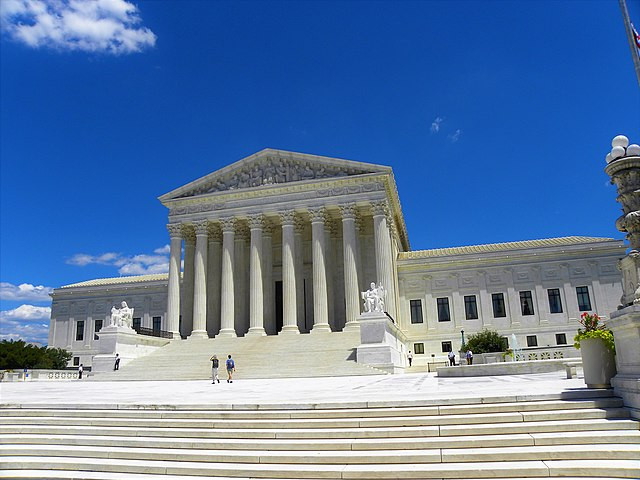President Joe Biden is reportedly contemplating significant reforms to the United States Supreme Court, including ending lifetime appointments for justices and enhancing the court's ethics code. This potential shift marks a dramatic change for Biden, who has previously resisted calls from within his party to alter the structure of the nation's highest court.
The proposed reforms come in the wake of several controversial Supreme Court decisions, including the removal of the federal right to abortion and a ruling granting former President Donald Trump immunity from prosecution for "official acts" as president. According to CBS News, Biden is exploring the establishment of term limits for justices and other reforms to address growing concerns about the court's direction and integrity.
On a recent call with the Congressional Progressive Caucus, Biden discussed these potential changes, signaling that official announcements could be forthcoming. However, White House Press Secretary Karine Jean-Pierre declined to provide further details or a timeline for any formal proposals.
The challenge for Biden will be navigating these reforms through a divided Congress. With a Republican-controlled House and a slim Democratic majority in the Senate, passing such significant changes would be a formidable task. Nonetheless, the president's reported engagement with constitutional scholars and experts indicates a serious commitment to exploring these reforms.
Former President Trump has responded vehemently to these reports, labeling the proposed changes as "unconstitutional" and "illegal." In a post on Truth Social, Trump accused the Democrats of attempting to manipulate the judiciary and interfere with the presidential election. He framed the potential reforms as part of a broader effort to undermine his political prospects and the integrity of the Supreme Court.
The backdrop to this political maneuvering includes ethical questions surrounding some of the court's conservative justices. Justice Clarence Thomas has faced scrutiny for accepting luxury trips from a billionaire Republican donor, raising concerns about impartiality and influence. Additionally, the court's conservative majority has issued several rulings that have reshaped significant aspects of American law, from abortion rights to environmental regulations.
Biden's exploration of Supreme Court reforms is seen by some as an attempt to galvanize the progressive base of the Democratic Party. Progressive lawmakers and activists have been vocal about the need for changes to the court, especially following the appointment of three conservative justices by Trump, which solidified a 6-3 conservative majority.
The president's commission on Supreme Court reform, established early in his term, previously issued recommendations that were not acted upon. Renewed interest in these recommendations could signal a shift in Biden's approach as he prepares for the upcoming election cycle. By taking a firmer stance on judicial reforms, Biden may aim to present a robust platform to counter the influence of the conservative court.
In addition to term limits and ethical reforms, Biden is reportedly considering backing a constitutional amendment to eliminate the broad immunity currently afforded to presidents for their official acts. This move follows the Supreme Court's recent ruling that presidents have wide-ranging immunity from prosecution, a decision that has had immediate implications for ongoing cases against Trump.
Political analysts suggest that Biden's engagement with Supreme Court reforms could serve as a strategic issue for his re-election campaign. By highlighting the court's controversial decisions and proposing changes, Biden may seek to rally support among voters concerned about judicial overreach and the protection of individual rights.
In an interview with BET, Biden emphasized the potential long-term impact of future Supreme Court appointments, particularly if Trump were to secure another term. "Just imagine if he has two more appointments," Biden warned, underscoring the high stakes involved in the composition of the court.






